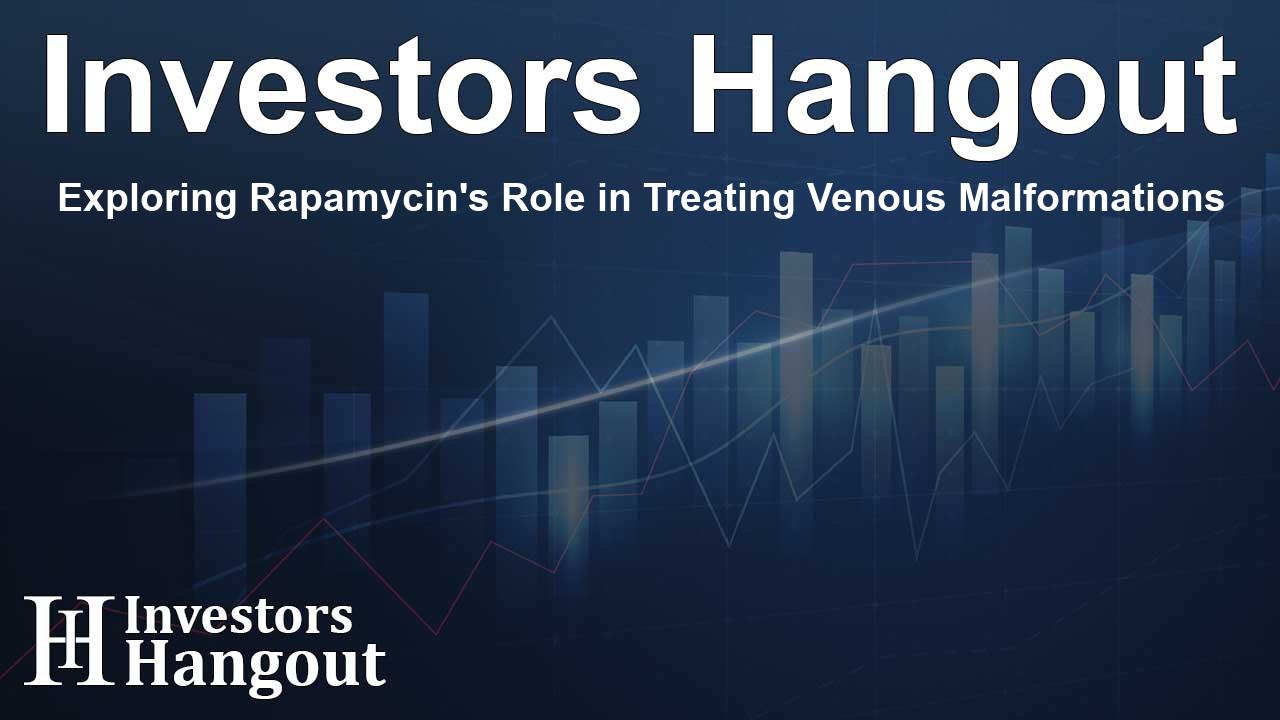Exploring Rapamycin's Role in Treating Venous Malformations

Understanding Recent Advances in Venous Malformations
Recent breakthroughs in the understanding of venous malformations (VMs) have shed light on the underlying pathogenesis, revealing how the PI3K/AKT/mTOR signaling pathway plays a pivotal role in the disease's progression. These insights have led to increased interest in the off-label use of systemic rapamycin (sirolimus) as a potential therapeutic option.
Publication of Systematic Review in a Renowned Journal
Insights from the Publication
A new publication in Lymphatic Research and Biology presents a systematic review of 26 studies that evaluate the efficacy of rapamycin in treating venous malformations. This comprehensive analysis underscores the pressing clinical needs faced by patients suffering from VMs, particularly noting the absence of FDA-approved pharmacologic options. Authors advocate for a targeted, FDA-approved topical formulation of rapamycin specifically designed for patients affected by cutaneous VMs.
The Unmet Need
Joyce Teng, M.D., Ph.D., a leading expert in dermatology, emphasizes the importance of addressing the considerable gap in treatment options for cutaneous venous malformations. She noted how existing interventional treatments, including surgery and sclerotherapy, often fall short for patients with extensive or invasive disease forms. The systematic review's outcomes reinforce the potential benefits of utilizing rapamycin as a treatment strategy.
Key Findings from the Review
The systematic review offers crucial findings regarding rapamycin's application in the treatment of VMs:
- Studies highlighted a correlation between the activation of the PI3K/AKT/mTOR pathway and VM progression, suggesting it as a therapeutic target.
- Rapamycin has demonstrated success in cases where traditional treatments showed little to no effect, providing improvements in aspects like functional capacity and overall quality of life for many patients.
- The study notes that a topical formulation of rapamycin could mitigate risks associated with systemic treatments while effectively delivering therapeutic concentrations directly to the skin.
Palvella’s Innovative Approach to Treatment
Palvella Therapeutics, Inc. (NASDAQ: PVLA), a clinical-stage biopharmaceutical company, is dedicated to developing novel therapies for rare genetic skin diseases. Their lead candidate, QTORIN™ 3.9% rapamycin anhydrous gel, is under investigation in the ongoing Phase 2 TOIVA trial. The trial aims to assess the gel's effectiveness for cutaneous VMs, a significant advancement considering there are currently no FDA-approved therapies for this condition.
The Future of Venous Malformation Treatment
Importance of Rapamycin in Clinical Trials
Palvella Therapeutics recently completed patient enrollment for the TOIVA trial, which aims to elucidate the effectiveness of QTORIN™ rapamycin. This milestone marks a major step forward in discovering viable treatments for the more than 75,000 patients in the U.S. diagnosed with cutaneous VMs.
Regulatory Recognition of QTORIN™ Rapamycin
The FDA's designation of Fast Track to QTORIN™ rapamycin underlines the urgent need for targeted treatments for venous malformations. The early data from the clinical trial is eagerly anticipated within the medical community as researchers, patients, and advocates look for solutions in managing this challenging condition.
About Cutaneous Venous Malformations
Cutaneous venous malformations represent a serious and rare genetic disorder that arises from mutations leading to abnormal activation of cellular growth pathways. The resultant morphological abnormalities in the veins within skin tissue can lead to extensive health complications including severe pain, ulceration, and psychological distress. There is an undeniable need for localized treatment options that reduce systemic risks while addressing these challenges.
About Palvella Therapeutics
Founded by experts with extensive backgrounds in rare disease drug development, Palvella Therapeutics, Inc. (NASDAQ: PVLA) strives to advance gene therapies and innovative solutions targeting rare genetic skin diseases. Alongside QTORIN™ rapamycin, the company is working on various product candidates harnessed from its proprietary QTORIN™ platform. This foundational approach promises potential breakthroughs for patients suffering from lifelong conditions related to their skin health.
Frequently Asked Questions
What are venous malformations?
Venous malformations are abnormal formations of veins often caused by genetic mutations, leading to significant health challenges.
How is rapamycin used for treating venous malformations?
Rapamycin is being studied for its efficacy in managing VMs, particularly to reduce symptoms and abnormal vein growth.
What is the Phase 2 TOIVA trial?
The Phase 2 TOIVA trial evaluates the QTORIN™ rapamycin gel for its effectiveness on cutaneous venous malformations.
Why is FDA Fast Track designation important for QTORIN™ rapamycin?
Fast Track designation expedites the development of therapies that address significant unmet medical needs, enhancing the speed of reaching patients.
What is Palvella Therapeutics' mission?
Palvella aims to develop innovative treatments for patients suffering from serious, rare genetic skin diseases without existing FDA-approved options.
About The Author
Contact Evelyn Baker privately here. Or send an email with ATTN: Evelyn Baker as the subject to contact@investorshangout.com.
About Investors Hangout
Investors Hangout is a leading online stock forum for financial discussion and learning, offering a wide range of free tools and resources. It draws in traders of all levels, who exchange market knowledge, investigate trading tactics, and keep an eye on industry developments in real time. Featuring financial articles, stock message boards, quotes, charts, company profiles, and live news updates. Through cooperative learning and a wealth of informational resources, it helps users from novices creating their first portfolios to experts honing their techniques. Join Investors Hangout today: https://investorshangout.com/
The content of this article is based on factual, publicly available information and does not represent legal, financial, or investment advice. Investors Hangout does not offer financial advice, and the author is not a licensed financial advisor. Consult a qualified advisor before making any financial or investment decisions based on this article. This article should not be considered advice to purchase, sell, or hold any securities or other investments. If any of the material provided here is inaccurate, please contact us for corrections.
